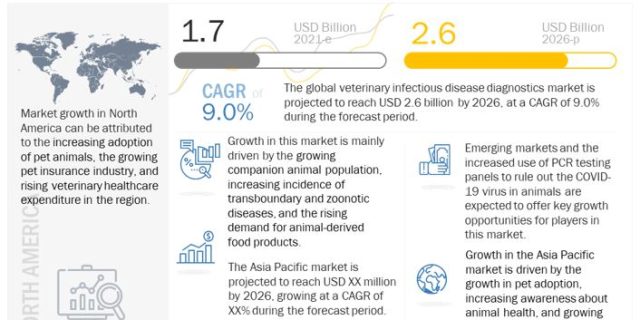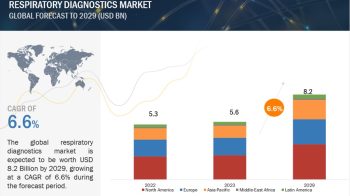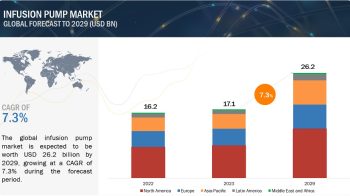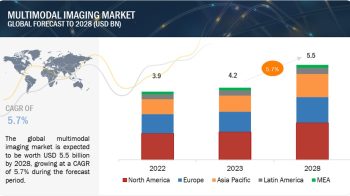
This report aims to provide detailed insights into the global Veterinary Infectious Disease Diagnostics Market. It provides valuable information on the type, procedure, application, and region in the market. Furthermore, the information for these segments, by region, is also presented in this report. Leading players in the market are profiled to study their product offerings and understand the strategies undertaken by them to be competitive in this market.
Revenue Growth Analysis:
[392 Pages Report] The veterinary infectious disease diagnostics market is expected to reach USD 2.6 billion by 2026 from an estimated USD 1.7 billion in 2021, at a CAGR of 9.0%.
Key Factors Driving Market Growth:
Growth in veterinary infectious disease diagnostics market can largely be attributed to the growth in the companion animal population, increasing incidence of transboundary and zoonotic diseases, rising demand for animal-derived food products, rising demand for pet insurance, growing animal health expenditure, and growth in the number of veterinary practitioners and income levels in developed economies.
Download PDF Brochure:
https://www.marketsandmarkets.com/pdfdownloadNew.asp?id=221816584
Veterinary Infectious Disease Diagnostics Market Dynamics:
Growth in the Companion Animal Population
A surge in the overall companion animal population and adoption rate has been witnessed on a global scale. According to several studies, having a companion animal is associated with positive health benefits, such as reduced cardiac arrhythmias, normalization of blood pressure, decreased anxiety, greater psychological stability, and improved well-being. The increasing pet population is expected to drive the demand for pet care products and services, which, in turn, will support the growth of dependent industries such as veterinary infectious disease diagnostics.
North America:
1. According to a National Pet Owners Survey (2019–2020) conducted by the American Pet Products Association (APPA), an estimated 67% of US households, or about 84.9 million families, owned a pet.
2. Around 63.4 million households owned dogs, 42.7 million owned cats, and 1.6 million owned horses in the US in 2018.
Increased Use of PCR Testing Panels to Rule Out Covid-19 Virus in Animals
With regard to the current COVID-19 pandemic, animal health authorities have been carrying out tests to understand how the virus is affecting animals. So far, research studies and testing show that felines are more susceptible than other animals. Testing also shows that the virus spreads less from animal to animal as opposed to human-human or human-animal. It is expected that pet owners will increasingly start testing their pets for the absence of these diseases, thus increasing the demand for PCR panels for virus testing. This will create opportunities for new molecular diagnostics panels in the industry.
North America accounted for the largest share of the Veterinary Infectious Disease Diagnostics Market
North America accounted for the largest share of the global veterinary infectious disease diagnostics market. The growth in the veterinary diagnostics market of North America is characterized by the increasing population of companion and food-producing animals, rising meat and dairy product consumption, the availability of technologically advanced veterinary reference laboratories, rising veterinary healthcare expenditure, and growth in pet insurance coverage.
Request Research Sample Pages:
https://www.marketsandmarkets.com/requestsampleNew.asp?id=221816584
Some of the major players in the veterinary infectious disease diagnostics market include IDEXX Laboratories, Inc. (US), Zoetis, Inc. (US), Thermo Fisher Scientific, Inc. (US), Virbac (France), bioMérieux SA (France), Heska Corporation (US), IDvet (France), NEOGEN Corporation (US), QIAGEN N.V. (a part of INDICAL Bioscience) (Europe), Randox Laboratories Ltd. (UK), Agrolabo S.p.A. (Italy), Bio-Rad Laboratories (US), Bionote, Inc. (South Korea), Biogal Galed Labs (Israel), BioChek (Netherlands), (UK), Biopanda Reagents (UK), URIT Medical Electronic Co. Ltd. (China), MEGACOR Diagnostik GmbH (Austria), LIVET (UK), INDICAL BIOSCIENCE GmbH (Germany), Fassisi GmbH (Germany), Alvedia (France), SKYER, Inc. (South Korea), Shenzhen Bioeasy Biotechnology Co., Ltd. (China), and Precision Biosensor (US).


